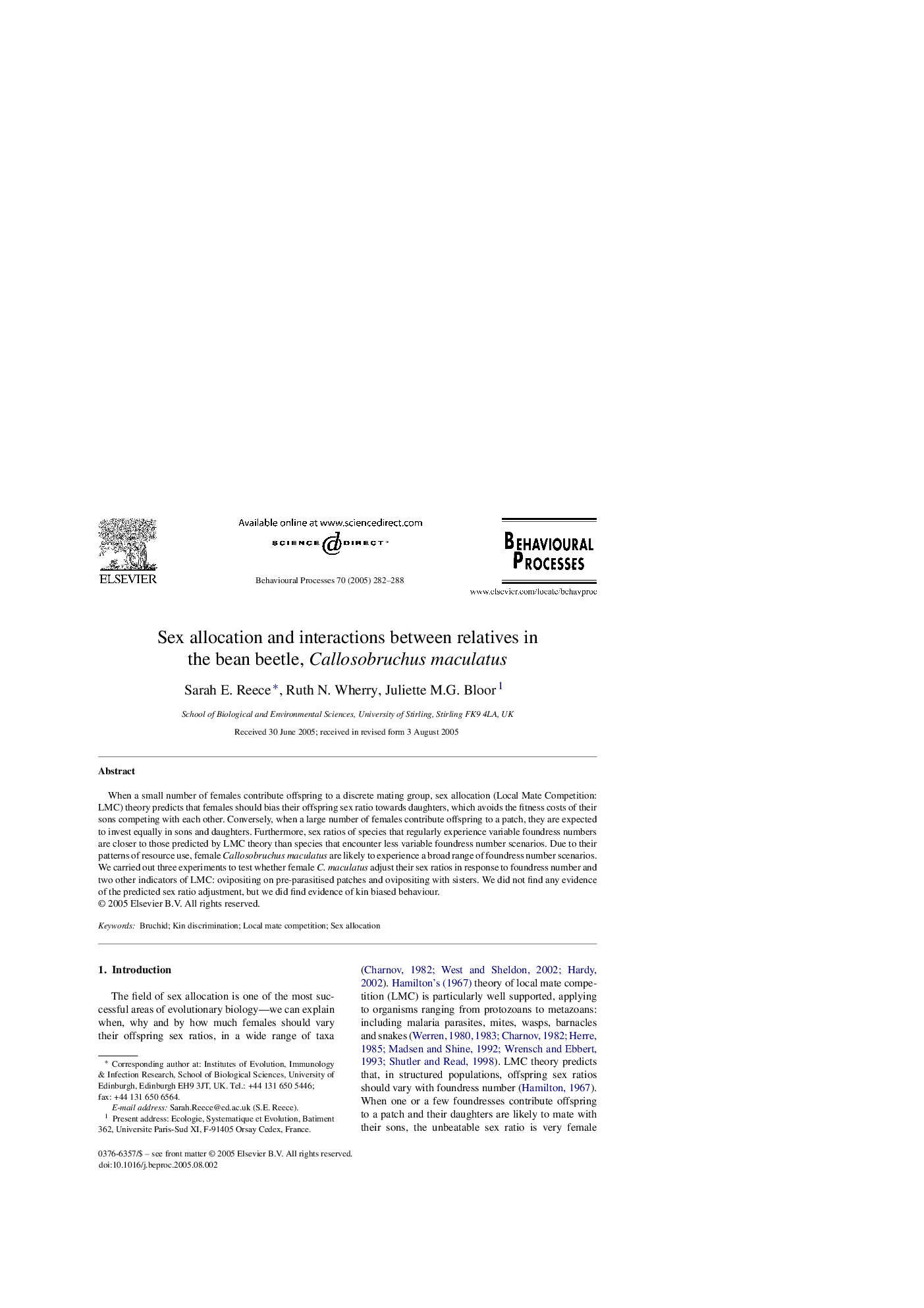| Article ID | Journal | Published Year | Pages | File Type |
|---|---|---|---|---|
| 8977358 | Behavioural Processes | 2005 | 7 Pages |
Abstract
When a small number of females contribute offspring to a discrete mating group, sex allocation (Local Mate Competition: LMC) theory predicts that females should bias their offspring sex ratio towards daughters, which avoids the fitness costs of their sons competing with each other. Conversely, when a large number of females contribute offspring to a patch, they are expected to invest equally in sons and daughters. Furthermore, sex ratios of species that regularly experience variable foundress numbers are closer to those predicted by LMC theory than species that encounter less variable foundress number scenarios. Due to their patterns of resource use, female Callosobruchus maculatus are likely to experience a broad range of foundress number scenarios. We carried out three experiments to test whether female C. maculatus adjust their sex ratios in response to foundress number and two other indicators of LMC: ovipositing on pre-parasitised patches and ovipositing with sisters. We did not find any evidence of the predicted sex ratio adjustment, but we did find evidence of kin biased behaviour.
Related Topics
Life Sciences
Agricultural and Biological Sciences
Animal Science and Zoology
Authors
Sarah E. Reece, Ruth N. Wherry, Juliette M.G. Bloor,
